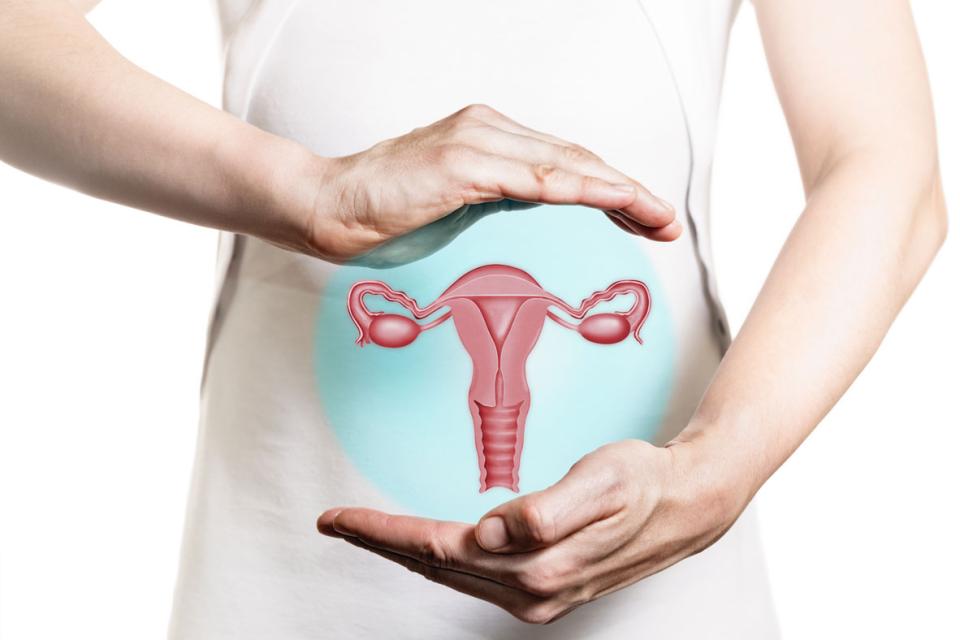Milk Products and Ovarian Cancer
According to the World Health Organization (WHO) International Agency for Research on Cancer (IARC), relatively few classic lifestyle factors are associate with ovarian cancer risk.1 The World Cancer Research Fund (WCRF) International notes there is modest association between excess body fatness and ovarian cancer, which is another reason for women to adopt a healthy lifestyle.2 Although people may wonder about links between foods and ovarian cancer, there is little scientific support to link any dietary factors with ovarian cancer.1,2

Highlights
- Scientific evidence does not support a link between milk products and ovarian cancer.
- Large prospective studies have found no association between the consumption of milk products and risk of ovarian cancer.
- Meta-analyses exploring calcium and vitamin D and ovarian cancer risk suggest these nutrients are associated with either a neutral or protective role.
Basic facts on ovarian cancer
Ovarian cancer is a relatively rare type of cancer.1 Health authorities note there are a number of known risk factors for ovarian cancer.1-3 These include the following, among others:
- Family history of ovarian cancer
- BRCA gene mutations
- Never being pregnant or giving birth
- Personal and family history of breast cancer
- Hormone replacement therapy
- Endometriosis
- Smoking
- Tall adult height
- Excess body fatness (marked by high Body Mass Index)
The evidence
The 2020 IARC World Cancer Report published by the WHO International Agency for Research on Cancer states the available evidence does “not support strong associations between diet or physical activity and risk of ovarian cancer.”1 However, since there is a modest association between high body mass index and increased risk of ovarian cancer, this is another reason to encourage women to adopt a healthy lifestyle and maintain a healthy body weight.
According to the Third Expert Report published in 2018 by the World Cancer Research Fund International and the American Institute for Cancer Research, the evidence on milk and dairy products and risk for ovarian cancer was judged as “limited – no conclusion.”2 Therefore, there is little scientific support for a relation between milk and dairy products and an increased risk of ovarian cancer.
The Nurses’ Health Study I (n=76,243) and II (n=88,356) data was used to assess whether dairy intake was associated with epithelial ovarian cancer risk over 28 years of follow-up.4
- Consumption of skim milk, whole milk, lactose, dairy calcium or dairy fat during adulthood was not associated with ovarian cancer risk.
- No association was also observed for intakes during high school, pre-menopause or post-menopause.
- In analyses by type of ovarian cancer, no association was observed for serous ovarian cancer, but the highest quintile of lactose intake was associated with a 68% reduction in the risk endometrioid ovarian cancer.
Using data from the European Prospective Investigation into Cancer and Nutrition study and the Netherlands Cohort Study, Merritt et al. evaluated an extensive list of dietary factors in relation to epithelial ovarian cancer risk:5
- The consumption of milk, yogurt and cheese was not associated with epithelial ovarian cancer risk.
Potential mechanisms
Calcium and vitamin D
The role of calcium and vitamin D in ovarian cancer risk remains to be fully elucidated. Calcium may protect against carcinogenesis by down-regulating the production of parathyroid hormone (PTH), which may reduce cell proliferation and increase apoptosis (cell death).6 Calcium in milk also binds carcinogens such as bile salts and fatty acids.7
Vitamin D receptors are found in ovarian cancer cells and evidence suggests that vitamin D inhibits cell proliferation and induces apoptosis (cell death).8
Findings from meta-analyses suggest that there may be a neutral or inverse association between vitamin D and calcium and ovarian cancer risk.6,8,9
However, the Third Expert Report by the World Cancer Research Fund International and the American Institute for Cancer Research states that the evidence on calcium and serum vitamin D and ovarian cancer is limited and no conclusion can be drawn.2
Lactose and galactose
It has been suggested that lactose, in particular its metabolite galactose, may be toxic to ovarian cells (oocytes). Yet, according to study findings, lactose and galactose do not appear to be associated with ovarian cancer risk.4,5 According to the Third Expert Report by the World Cancer Research Fund International and the American Institute for Cancer Research there is little support for a link between lactose and ovarian cancer.2
Conclusion
The scientific evidence does not support an association between milk and milk products and risk of ovarian cancer.
References
- International Agency for Research on Cancer/WHO. World cancer report: cancer research for cancer prevention. Lyon: IARC. 2020.
- World Cancer Research Fund/American Institute for Cancer Research. Diet, Nutrition, Physical Activity and Cancer: a Global Perspective, Continuous Update Project Expert Report 2018. www.dietandcancerreport.org. Accessed October 26, 2021.
- Canadian Cancer Society. 2021. What is ovarian cancer? www.cancer.ca. Accessed October 26, 2021.
- Merritt MA et al. Dairy food and nutrient intake in different life periods in relation to risk of ovarian cancer. Cancer Causes Control 2014;25:795-808.
- Merritt MA et al. Nutrient-wide association study of 57 foods/nutrients and epithelial ovarian cancer in the European Prospective Investigation into Cancer and Nutrition study and the Netherlands Cohort Study. Am J Clin Nutr 2016;103:161-167.
- Song X et al. Calcium intake and the risk of ovarian cancer: a meta-analysis. Nutrients 2017;9:679.
- Weaver CM. Role of dairy beverages in the diet. Physiol Behav 2010;100:63-66.
- Xu J et al. Association between vitamin D/calcium intake and 25-hydroxyvitamin D and risk of ovarian cancer: a dose-response relationship meta-analysis. Eur J Clin Nutr 2021;75:417-429.
- Yin L et al. Meta-analysis: circulating vitamin D and ovarian cancer risk. Gynecol Oncol 2011;121:369-375.

